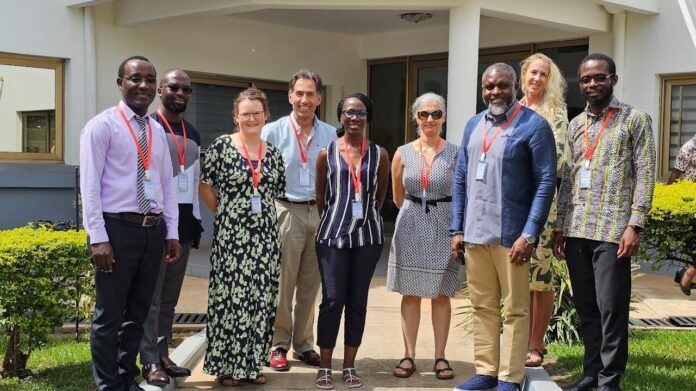In a collaborative effort aimed at addressing the persistent issue of snakebites in Africa, Kenya, Eswatini, Ghana, Malawi, and Rwanda have come together under the guidance of the Liverpool School of Tropical Medicine (LSTM) to form the African Snakebite Alliance (ASA). This alliance seeks to tackle the challenges posed by snakebites and develop targeted strategies to combat them, including the creation of vaccines specific to the region.
The formation of ASA marks a significant step towards addressing the neglected issue of snakebites, which disproportionately affects rural communities in low and middle-income countries across Africa. By pooling resources and expertise from various organizations and institutions, including the Institute of Primate Research, the World Health Organization (WHO), and local health foundations, ASA aims to devise comprehensive solutions to mitigate the impact of snakebites on affected populations.

Illustrative Image: Addressing Snakebite Crisis in Africa: African Snakebite Alliance (ASA) Leads Collaborative Solutions
Image Source & Credit: Global Snakebite Initiative
Ownership and Usage Policy
Professor Ymkje Stienstra, director of ASA and a faculty member at LSTM, highlights the importance of community engagement and data-driven approaches in guiding ASA’s efforts. By soliciting input from communities and policymakers, ASA intends to identify key research questions and develop evidence-based interventions to prevent snakebites and minimize their consequences.
A report compiled by ASA stakeholders from 15 African countries sheds light on the challenges hindering effective snakebite research and policymaking. Limited funding, inadequate data, and a lack of interest from policymakers are identified as major obstacles. However, stakeholders recognize the potential for progress through increased financial commitment, political support, and the establishment of collaborative networks dedicated to snakebite research.
Snakebite envenoming, caused by toxins injected during snakebites, poses a significant public health threat in Africa, contributing to thousands of deaths annually. Traditional healers often treat a substantial portion of snakebite cases, indicating gaps in healthcare access and awareness. Accurate assessment of snakebite incidence and mortality rates is essential for informing targeted interventions and monitoring progress towards reducing the burden of snakebites in the region.
The findings underscore the urgent need for concerted efforts to address the snakebite problem in Africa. By leveraging scientific expertise, community engagement, and strategic partnerships, ASA aims to make significant strides towards reducing the impact of snakebites and improving healthcare outcomes for affected populations.
















 The African Research (AR) Index is a comprehensive scholarly directory and database focused explicitly on journal publishers that publish and disseminate African research.
The African Research (AR) Index is a comprehensive scholarly directory and database focused explicitly on journal publishers that publish and disseminate African research.

